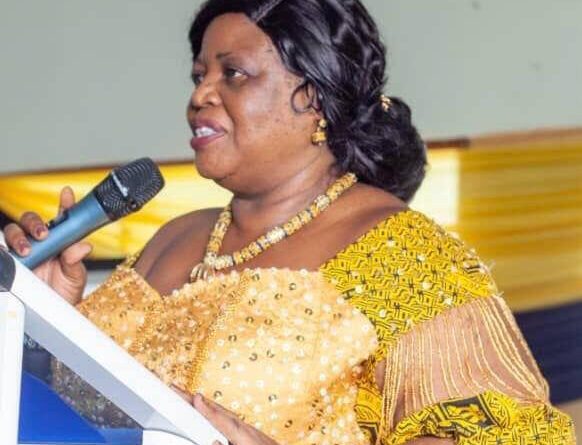Breman Asikuma SHS Calls for Urgent Assistance
By: Kofi Tutu, Asikuma
The management of Breman Asikuma Senior High School (BASS) in the Central Region has launched a 2,400-capacity aquaculture project and acres of vegetable farms to provide students with nutritious meals, and is now appealing for increased support.
This initiative aims to enhance the teaching and learning of Agricultural Science for both Agric and non-Agric students, while also improving the availability of healthy meals for students.
The project aligns with the school’s theme of “homegrown solution to home problems” in commemoration of its upcoming 60th anniversary celebration in 2024.
Ms. Sarah Baah-Odoom, the Headmistress of the school, expressed her gratitude to the Ministry of Fisheries and Aquaculture Development, Blue Skies Company, alumni, staff, Methodist Church, and the Ghana Education Service for their support in an interview with the media.
Currently, the school has already constructed four fishponds measuring 20 × 15 meters in preparation for the aquaculture project, and is eagerly awaiting the arrival of the fingerlings.
Ms. Baah-Odoom emphasized that aquaculture helps supplement wild seafood, making it more affordable and accessible to all in the district who rely on imported seafood products.
With the assistance of Blue Skies Company, the school has also initiated a competition among students for vegetable farming, ensuring sustainable year-round production of vegetables.
This competition encourages the use of environmentally-friendly practices, and as a result, the school has already enjoyed delicious garden egg stew with banku on two occasions.
Ms. Baah-Odoom highlighted the crucial role of vegetables in food and nutrition security in Ghana, as the country’s food system has shifted focus from quantity to quality and health benefits.
Additionally, the school possesses a large acreage of arable land for cultivating staple crops to feed students, provide livestock feed, and generate additional revenue.
Ms. Baah-Odoom emphasized that agriculture is the backbone of Ghana, and therefore, it is important to integrate agricultural education into the school curriculum to ensure national food security.
Unfortunately, she noted that agriculture still suffers from image problems, often seen as an inferior and non-academic profession.
However, she believes that “the sky is the limit for children when you combine agricultural education with a passion for sustainable living.”
Addressing other pressing concerns, she revealed that the school, which started with only six students six decades ago, has now grown to a population of 2,811 as of November 2023.
This includes 1,526 girls and 1,285 boys, with 2,043 being boarders and 768 day students.
However, the school faces challenges such as inadequate security personnel, staff accommodation, dormitories, restroom facilities, an incomplete fence wall, and a library for students and staff.

